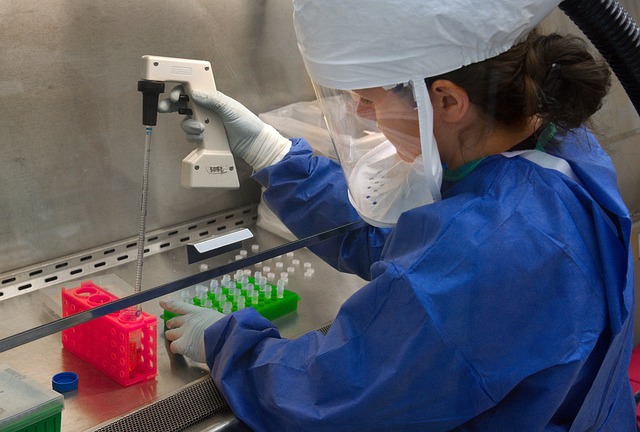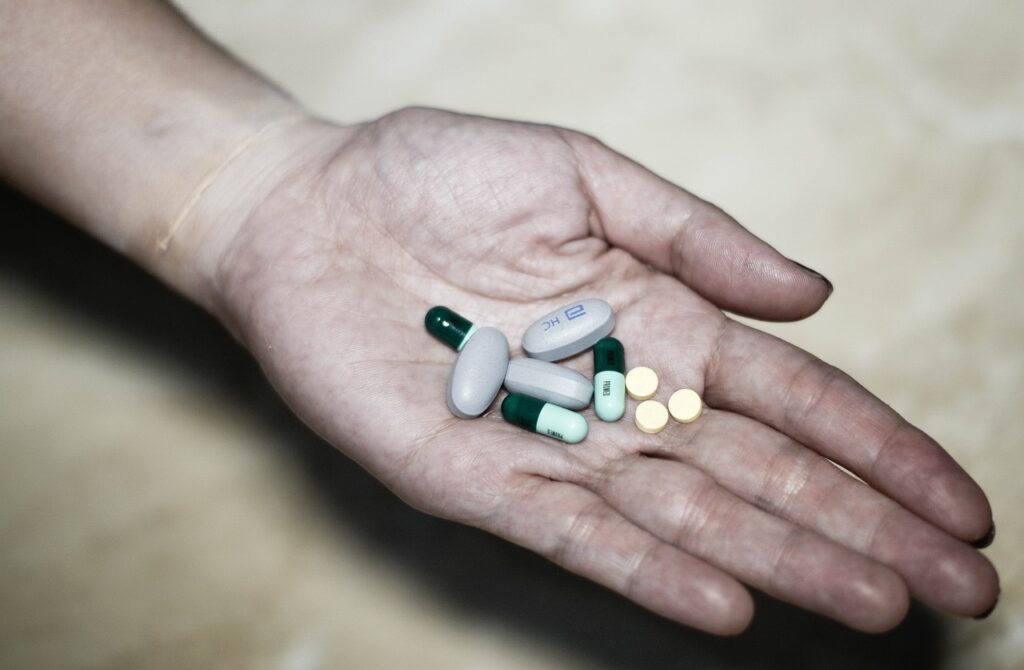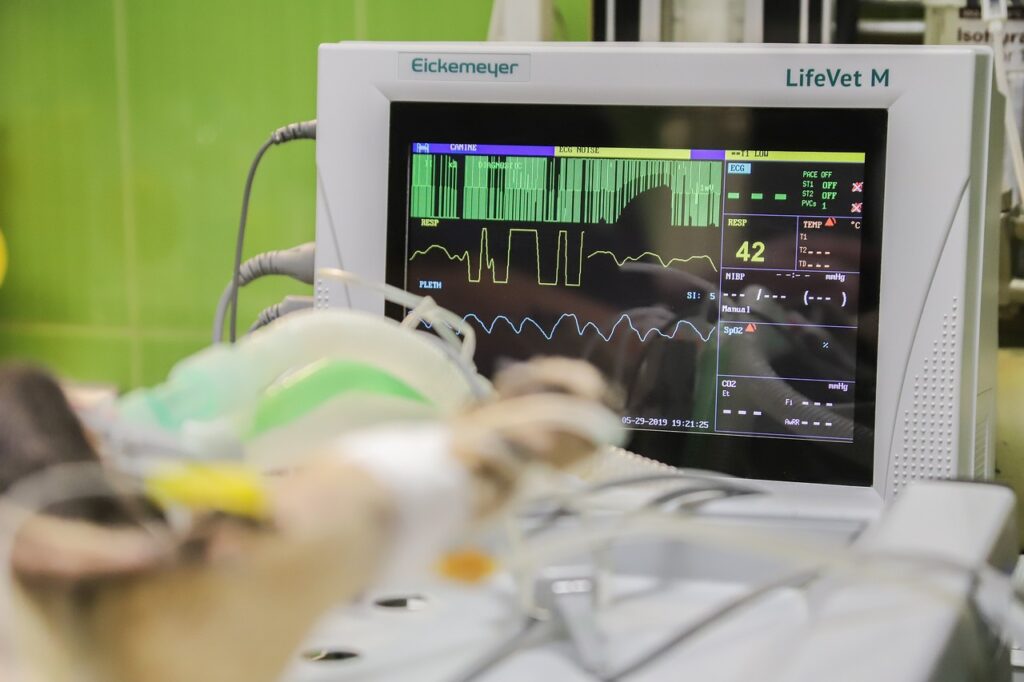The COVID-19 pandemic has undeniably left a lasting impact on the Health of people and overall in World. Its disruptive nature has reshaped various aspects of our lives, including our approach to healthcare. As we enter a new era, it is essential to shift our focus towards the future and explore innovative ways to ensure the well-being.
Understanding the Changing Dynamics of Health
The pandemic has brought to light the need for the transformation of healthcare systems worldwide. As the healthcare landscape evolves, it is crucial for institutions and policymakers to adapt accordingly. This includes embracing technological advancements, streamlining processes, and enhancing collaboration between different sectors of the healthcare industry
Technology has emerged as an indispensable tool in the post-pandemic healthcare realm. From telemedicine to wearable devices, it has revolutionized the way we access and manage healthcare services. Leveraging artificial intelligence (AI) and data analytics can aid healthcare providers in offering personalized and efficient care.
The pandemic has highlighted the importance of preventive care in maintaining public health. By promoting healthy lifestyle choices, implementing vaccination programs, and providing timely screenings, communities can effectively prevent the spread of diseases and improve overall outcomes.
Addressing Mental Health in the Post-Pandemic World

The pandemic has taken a toll on people’s mental well-being, resulting in increased levels of anxiety, depression, and trauma. It is imperative to acknowledge and address these mental health consequences as an integral part of the post-pandemic healthcare agenda.
To effectively address mental health challenges, it is essential to develop and implement holistic mental health programs. These programs should encompass a range of strategies, such as providing accessible therapy, promoting social support networks, and integrating mental health education into various sectors of society.
One significant obstacle in addressing mental health is the persistent stigma associated with seeking treatment. Efforts must be made to destigmatize mental health treatment and create an environment in which individuals feel comfortable seeking help without fear of judgment or discrimination.
Tackling Long-Term Effects of COVID-19

COVID-19 survivors may experience a wide range of long-term physical and neurological symptoms, commonly referred to as long COVID. Identifying and managing these symptoms is crucial in providing appropriate care and support to those affected.
Individuals who have recovered from COVID-19 may require ongoing rehabilitation and support to regain their physical and mental well-being. By developing specialized programs and resources, healthcare systems can assist survivors in their recovery journey.
The pandemic has exposed vulnerabilities in our healthy systems. To prepare for future health challenges, it is essential to invest in building resilience. This encompasses enhancing healthcare infrastructure, strengthening emergency response mechanisms, and fostering collaboration between public healthcare institutions and community stakeholders.
The Rise of Telemedicine and Remote Healthcare

Telemedicine has emerged as a powerful tool for increasing access to healthcare, particularly in remote or underserved areas. By utilizing telecommunication technologies, healthcare providers can deliver medical expertise, consultations, and monitoring remotely, bridging the gaps in healthcare access.
While telemedicine offers significant benefits, its successful implementation faces certain barriers. These include technological disparities, limited internet access, and concerns regarding data privacy and security. Addressing these challenges is crucial for the equitable adoption and utilization of telemedicine.
As healthcare transitions to remote models, ensuring patient privacy and data security becomes paramount. Healthcare providers and policymakers must establish robust protocols and mechanisms to safeguard patient information and maintain confidentiality in the increasingly digitized healthcare landscape.
Transforming Public Health Infrastructure

The COVID-19 pandemic has exposed the vulnerabilities and gaps in public health infrastructure. To effectively navigate future health crises, it is vital to strengthen healthcare systems by investing in adequate resources, infrastructure, and workforce development.
Sustained funding and effective resource allocation are essential for the successful transformation of public health infrastructure. Governments and stakeholders must prioritize allocating resources to areas such as research and development, healthcare facilities, and public health programs.
Developing a robust global health network is crucial for effective response and preparedness in the face of future pandemics and emergencies. Collaboration between countries, organizations, and researchers will strengthen information sharing, research efforts, and preventive measures.
Revolutionizing Health Education and Literacy

Health literacy plays a vital role in empowering individuals to make informed decisions about their health. Promoting health literacy through educational campaigns, accessible resources, and collaboration with healthcare professionals can enhance health outcomes and reduce disparities.
Given the changing dynamics of healthcare, it is imperative to equip healthcare professionals with adaptive skills. Continuous professional development, training in emerging technologies, and fostering multidisciplinary collaboration can enhance the capabilities of healthcare professionals.
The digital era offers opportunities to modernize health education. Utilizing interactive platforms, virtual simulations, and mobile applications can make health education more engaging, accessible, and tailored to individuals’ needs.
Innovations in Personalized Medicine

Personalized medicine, also known as precision medicine, empowers healthcare providers to tailor treatments based on an individual’s genetics, lifestyle, and specific healthcare needs. This approach allows for more effective, targeted, and efficient healthcare interventions.
Advancements in genetic testing and genomic research provide opportunities to embrace precision medicine further. By incorporating genetic information into healthcare decision-making, healthcare providers can deliver personalized care and improve patient outcomes.
While personalized medicine holds immense potential, it also raises ethical considerations. Safeguarding patient privacy, navigating consent processes, and addressing concerns related to genetic discrimination are crucial aspects that need careful consideration and regulation.
Reimagining Traditional Healthcare Settings

Given the transformations in healthcare delivery, hospitals and clinics must be redesigned to meet the changing needs of patients. This involves creating spaces that prioritize patient comfort, safety, and seamless medical care, while integrating technological advancements.
Patient-centered care and shared decision-making are gaining prominence in the post-pandemic era. By involving patients in their healthcare journey, healthcare providers can improve treatment adherence, patient satisfaction, and overall outcomes.
Alternative therapies and holistic approaches to healthcare are gaining recognition for their potential in promoting well-being and managing various health conditions. Integrating these therapies into mainstream healthcare can enhance patient-centered care and expand treatment options.
Public-Private Partnerships for Healthcare Advancement

Public-private partnerships play a crucial role in advancing healthcare. By leveraging the strengths and resources of both sectors, it is possible to catalyze innovation, improve access to healthcare services and technologies, and achieve sustainable healthcare development.
Technological advancements are rapidly emerging, and public-private partnerships are instrumental in harnessing their potential. Collaborations can facilitate the adoption and integration of technologies, such as AI, Internet of Things (IoT), and blockchain, to streamline healthcare processes and enhance patient outcomes.
Public-private partnerships must strike a delicate balance between profit motives and public health goals. Ensuring that the objectives align with the greater good of society is crucial for maintaining trust, equity, and ethical practice in healthcare delivery.
The Role of Data Analytics in Healthcare

Data analytics has the potential to revolutionize disease prediction, prevention, and management. By harnessing big data and applying advanced analytics techniques, healthcare providers can identify patterns, predict future outbreaks, and implement preventive measures effectively.
While data analytics offers immense benefits, there are ethical concerns regarding the handling and privacy of health data. Transparency, informed consent, and strict data governance protocols are essential to build trust and ensure the responsible use of health data.
Data-driven insights obtained through analytics can accelerate medical research and innovation. By identifying factors affecting health outcomes and guiding research efforts, data analytics empowers researchers to make evidence-based decisions and drive progress in healthcare.
Nurturing a Culture of Health and Well-being

Promoting a culture of health and well-being begins with promoting healthy lifestyles and preventive measures. Encouraging regular exercise, nutritious diets, and regular health screenings can significantly impact population health and reduce the burden on healthcare systems.
Employers play a crucial role in fostering a culture of health among their employees. Corporate wellness programs, flexible work arrangements, and promoting work-life balance are some measures that can support employees’ physical and mental well-being.
Engaging communities in health initiatives can lead to more significant and sustainable health outcomes. By partnering with local organizations, involving community members in decision-making, and implementing context-specific interventions, healthcare providers can address community needs effectively.
Preparing for Future Pandemics and Health Emergencies
The COVID-19 pandemic has exposed the need for robust global pandemic preparedness. Governments and international organizations must invest in early warning systems, surveillance, and contingency planning to effectively respond to future pandemics and emergencies.
Early detection and rapid response are key to mitigating the impact of pandemics. Investing in advanced early warning systems, real-time surveillance, and information sharing mechanisms across borders are essential for timely and coordinated action.
Building resilience within healthcare systems involves strengthening infrastructure, training healthcare professionals, and developing effective crisis management protocols. By learning from past experiences and benchmarking best practices, healthcare systems can prepare for future challenges.

Summary
The post-pandemic era presents both new challenges and opportunities in the realm of health. From addressing mental health consequences to advancing personalized medicine, various areas require prioritization and innovation to shape a healthier future.
The post-pandemic health landscape necessitates proactive and comprehensive approaches that integrate various facets of healthcare. By addressing the intersecting challenges and leveraging emerging opportunities, society can overcome existing disparities and improve overall well-being.
While the road ahead may still present uncertainties, it is essential to inspire hope for a healthier future. Through collective efforts, innovative solutions, and a strong focus on human well-being, we can navigate the post-pandemic era and embrace new frontiers in people’s health.
FAQs
What are some immediate measures to address mental health post-pandemic?
- Expanding access to mental health services in communities
- Enhancing public awareness and education on mental health
- Supporting mental health programs in schools and workplaces
How can telemedicine bridge healthcare gaps in remote areas?
- Deploying telemedicine infrastructure and resources in remote areas
- Training healthcare providers in telemedicine practices
- Collaborating with local community networks to ensure equitable access
What steps can governments take to reduce health disparities?
- Implementing policies that prioritize marginalized communities’ healthcare needs
- Allocating resources to underprivileged regions for improving healthcare infrastructure
- Promoting diversity and inclusivity in healthcare workforce and decision-making positions
How can individuals contribute to advancing health literacy?
- Actively seeking out reliable health information from trusted sources
- Participating in health education programs and workshops
- Encouraging open dialogue about health topics within their communities
What role can AI play in personalized medicine?
- AI can analyze vast amounts of patient data, enabling personalized treatment plans
- AI-powered diagnostic tools can aid in early disease detection
- Machine learning algorithms can assist in tailoring medication dosages based on individual factors
For more Latest Articles about Healthy lifestyle visit: Informahub.com